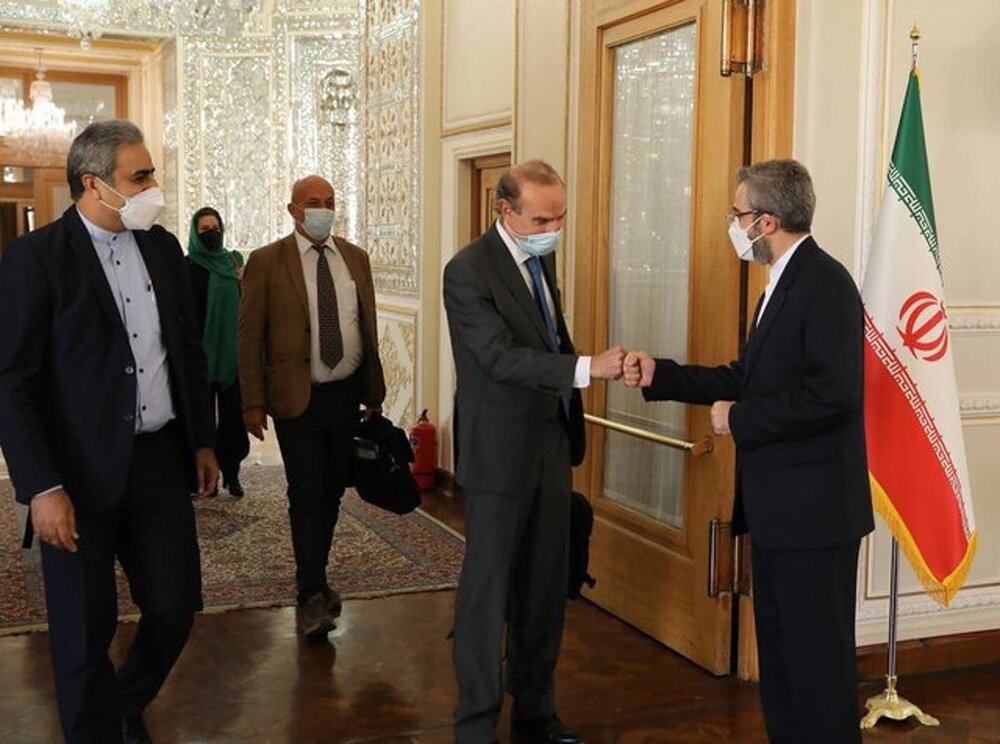Compliance, mandating the world to honor Resolution 2231 vital to revive, sustain JCPOA: analysis

TEHRAN – In a commentary on December 7, Bulletin of the Atomic Scientists proposed two steps to revitalize and of course “sustain” the 2015 nuclear deal, officially called the Joint Comprehensive Plan of Action (JCPOA).
It says first, all parties “should uphold their JCPOA obligations” and second “the UN Security Council should adopt a new resolution mandating that all nuclear deal parties and all UN member states implement UN Resolution 2231—the formal JCPOA agreement—completely, correctly, and without discrimination.”
Following is an excerpt of the commentary:
Iran had been in full compliance with the nuclear deal’s terms and conditions until Donald Trump withdrew from the deal and reimposed economic sanctions. In response, Iran gradually reduced its commitments to the deal. From the Iranian perspective, reviving the JCPOA means that all sanctions imposed by Trump must be lifted in a verifiable manner, such that it receives dividends—and not just on paper. In return, Iran would fulfill all of its obligations under the agreement. Tehran seeks assurance that the United States will not violate its commitment again. Yet U.S. officials cannot guarantee this as they do not have the power to limit their next president’s decisions. What’s needed now is not only a revived nuclear deal but a plan for it to endure.
Bagheri told Al-Jazeera that the non-American parties principally endorse the need for guarantees and verification and that “the Americans must also accept.” Bagheri stressed that Iran has outlined a proposal for providing the guarantees and a verification mechanism for lifting sanctions and offering reparations.
Many Americans and Israelis have concluded that Trump’s departure from JCPOA was a catastrophic mistake.
Part of the problem is that the parties that need to compromise—the United States and Iran—do not correspond directly with each other. Instead, they communicate via the Europeans involved in the JCPOA, which means that some correspondence is imprecise.
Iranians like to say that when a madman throws a stone into a well, 100 wise men will not be able to retrieve it. Trump tossed such a “stone” with his unprecedented, inconvenient withdrawal from the JCPOA that led to the current, difficult impasse. When he withdrew and violated UN Resolution 2231—the formal JCPOA agreement—he imposed more than 1,500 sanctions on Iran, half of which were nuclear in nature, while the remaining related to terrorism, human rights, and other issues. In response, Iran reduced its commitments to the nuclear deal. First, the country increased uranium enrichment to 20 percent and then to 60 percent. Many Americans and Israelis have since concluded that Trump’s departure from the nuclear deal was a catastrophic mistake.
President Raisi’s agenda for economic growth and development in Iran will be hampered if the economic sanctions that Trump imposed are upheld. While President Biden’s negotiating team has indicated that it is open to lifting many sanctions, it is unlikely to lift all sanctions imposed during Trump’s era. Moreover, the Biden administration faces the same problem that the Obama administration faced when attempting to lift economic sanctions “correctly.” During the Obama administration, Iran did not reap the full economic benefits of the nuclear deal to which it was entitled because of primary sanctions imposed by the United States. Similarly, U.S. calls for global businesses to restore ties with Iran in the aftermath of a current nuclear deal may again fall flat if risk-adverse businesses fear triggering U.S. primary sanctions.
The Biden admin. should take note that Iran suffered a $1 trillion loss as a result of Trump’s withdrawal from the JCPOA.
The Biden administration should take note that the Iranian economy suffered a $1 trillion loss as a result of Trump’s withdrawal from the nuclear deal. This amounts to the gross domestic product of an emerging economy such as Mexico. The Raisi administration learned the hard way—through experience—about this kind of massive economic loss. It will now do whatever it can to prevent such a loss in the future.n short, the world powers and Iran should articulate a sustainable implementation plan for the nuclear deal—one that allows both sides to fulfill their commitments moving forward without interruption. To revive and sustain the Iran nuclear deal, negotiators might consider two clear (if not simple) steps.First, all parties should uphold their JCPOA obligations. This means that the United States and other world powers should lift all sanctions imposed on Iran based on the nuclear deal’s parameters, and Iran should resume meeting its full JCPOA obligations.
Second, the UN Security Council should adopt a new resolution mandating that all nuclear deal parties and all UN member states implement UN Resolution 2231—the formal JCPOA agreement—completely, correctly, and without discrimination. The new resolution could establish a special international court to address differences between Iran and the United States in the nuclear deal’s implementation. Moreover, the resolution could establish an escrow security fund to compensate potential damages caused by breach or non-performance by one or more parties. After all, 100 wise men might agree that a revived nuclear deal that is destined to fail would not be much of a deal at all. But a revived nuclear deal built to endure, well, that would be cause for optimism.
Leave a Comment